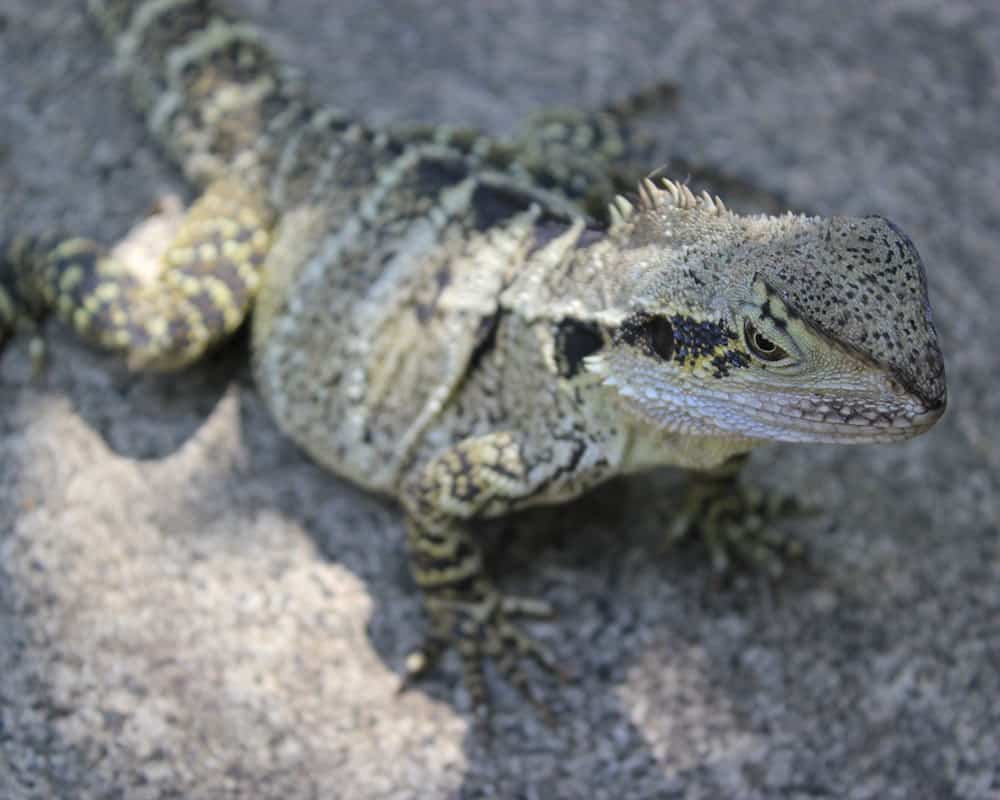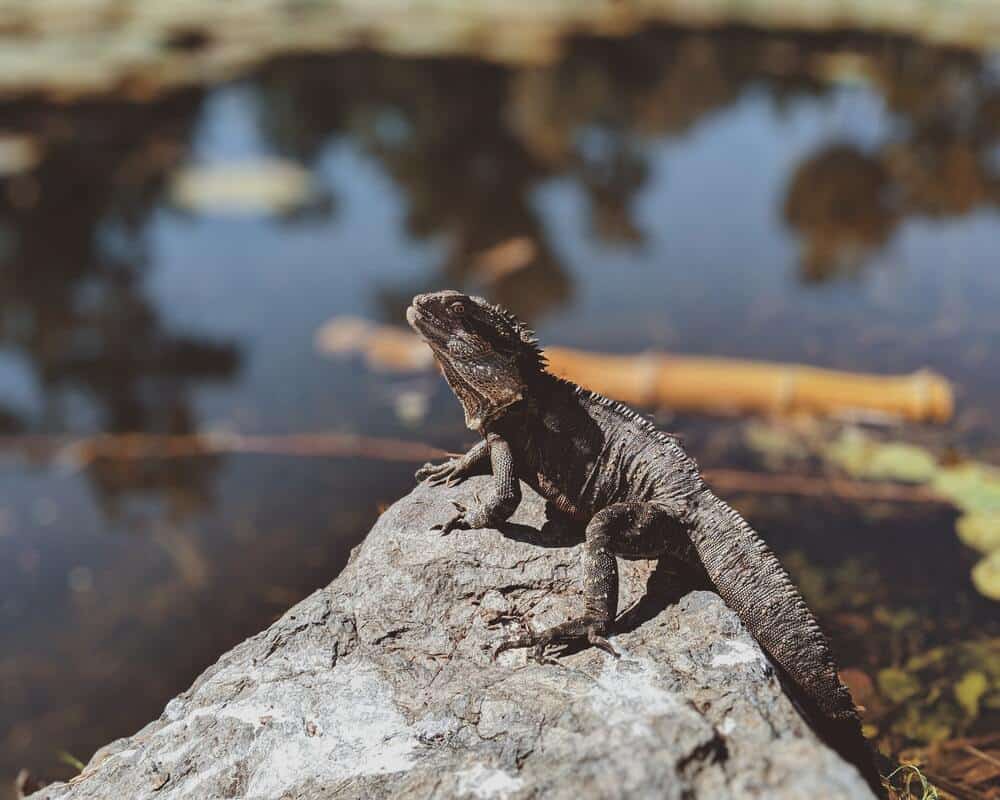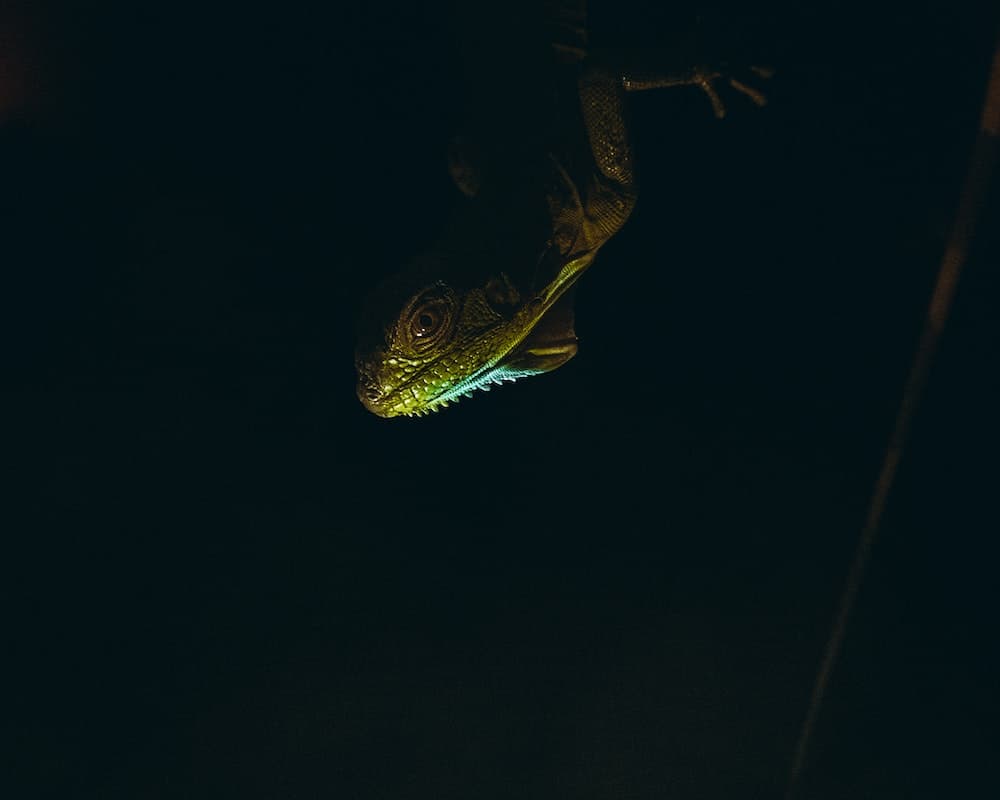Because of anxiety, disease, thirst, fear, or brumation, bearded dragons may tremble. The root of the problem can only be recognized via careful observation of their actions and expressions. Seek veterinary attention if they show signs of illness. Shaking and other health problems can be avoided with the right care and a low-stress environment.
Below in this article, we have discussed the potential reasons for the trembling or shaking of your pet. Read below to know more!
Why Is My Bearded Dragon Shaking? Reasons Why Bearded Dragons May Shake
You might notice that your bearded dragon is behaving strangely which can ring an alarm in your mind to check whether it’s not going through any illness. One of these behaviors is trembling or shaking, which can be an indication of a health issue. Below are some of the potential reasons for the shaking of the bearded dragons.
- Brumation
You might notice that your bearded dragon is suddenly sleeping a lot, not moving, not eating much, showing lazy behavior, etc. This happens when they go into a hibernation-like condition which is also known as brumation. It usually happens in winter when they just sit in one place saving their energy and enjoying their leisure time.
This brumation process shown can include normal shaking. As mentioned in the paragraph above, this condition in these bearded dragons appears when it’s the cold season.
In winter usually, the temperatures hit a very low degree, and because of that these bearded dragons try to keep themselves warm or try to generate heat for their body by shivering.
It’s crucial to remember that not all bearded dragons brumate by trembling, and some may exhibit other dormant behavior like less appetite or increased lethargy.
However, you should keep a careful eye on your pet’s behavior and seek advice from a veterinarian if you have any worries if the bearded dragon is trembling and also seems lethargic or weak.
- Stress
Bearded dragons may shake for several reasons, one of which is stress. Just like us, they have social and environmental anxieties. So, if their social and environmental comfortability is constantly being taken for granted then it can result in shaking or trembling.
They are vulnerable to a range of stressors and the most common of which is any little or big change in the lighting, temperature, loud music, or noises around them, coming in contact with strange humans or animals, or inadequacy of the habitat they are living in.
When under stress or other forms of danger, bearded dragons may exhibit several different behavioral and physiological reactions, including trembling and shaking.
You may notice that bearded dragons show a very intense reaction in terms of shaking immediately after being exposed to the stressor. But if you look at it for some time you might see that the shaking is gradually being relaxed. This is because the reaction of these pets is more intense when they are new to the stressor and then it becomes used to it and calms down at last.
You can also notice that once it is exposed to a stressor it suddenly falls ill. That’s because when these pets feel anxious or stressed they might develop illnesses that need to be attended seriously for them to not turn into chronic ones.
And due to the above-mentioned reason you should recognize and lessen the impact of any potential sources of stress in your pet’s habitat.
- Illness
Illness is another potential reason for your pet’s trembling or shaking behavior. If you own a bearded dragon you must know that these pet animals are very fragile. They get ill very quickly and easily. So many times they shiver or shake because they feel ill or they are going through something very painful.
They are prone to a variety of illnesses and health problems, some of which include metabolic bone disorders, breathing-related infections, parasites, and neurologic abnormalities. Shaking is a common symptom of these pets with these conditions.
Metabolic Bone Disease
The metabolic bone disease affects the bones and leads to the weakening of the bones of these pets. There can be many reasons for it but not receiving proper amounts of calcium is one of the main reasons and this weakness could induce a shiver in these bearded dragons.
Breathing Related Infections
Maintaining the perfect humidity levels and a clean habitat to keep these bearded dragons is very important. So they may show a signal by shaking if they are getting irritated or feeling ill due to humidity levels.
Coughing, wheezing, and other breathing difficulties are common reactions to respiratory tract infections. Shaking or trembling may also accompany these symptoms.
Health Problems Due to Parasites
They can also experience health problems as a result of parasites such as mites or worms in their intestines, which can result in shaking as well as other symptoms of discomfort or disease.
Neurological Disease
Neurological diseases such as seizures or tremors can also be one of many reasons for your pet’s shaking or trembling. Diagnosing these kinds of illnesses can be very tough.
As these disorders are internal and can be only felt by the animal itself, it becomes very difficult for you to diagnose and discover them.
So, if you see anything strange in the movement and your pet is behaving you should seek an expert’s advice as soon as possible!!
- Mating Behavior
Continuing the list of the reasons for your pet’s trembling or shaking, mating behavior comes next.
While you are breeding your pet, they may show a variety of new and happy emotions and movements like waving off their hands, making noises from their throats, etc. to attract or grab the attention of the female bearded dragons. These behaviors are often displayed during the mating season.
When it is displaying attention-seeking behavior, these actions may be accompanied by shaking or vibrating of the body. This is especially true when the male is attempting to attract the attention of the female.
In addition to engaging in wooing behaviors, male bearded dragons may also shake their bodies as they are mating or copulating. This is a natural aspect of the mating process, although it may become more evident depending on whether the female is very receptive or whether there is competition from other males.
You may notice that male bearded dragons become more aggressive if the female ones are in close proximity. Though this behavior of these pets is very normal so you relax and do not worry about treating them. They will calm down naturally.
- Vitamin A Toxicity
Next on the list is an inadequate supply of vitamin A, while another is an excess of the vitamin. Vitamin A toxicity, often called hypervitaminosis A, is caused by an animal’s ingestion of excessive levels of vitamin A.
You may notice that your bearded dragon has lost a lot of weight, not eating properly, and looks weak. This might be because there is a lack of intake of vitamin A. As the toxicity worsens, more symptoms may manifest themselves, such as skeletal deformities, damage to the liver, and neurological issues.
You must be wondering if Vitamin A is related to their body weight then how will it induce shivering in these pets? The answer to it is very simple: if the pet is going through what is affecting its body then it will affect its brain too. So, shivering happens because of neurological stress induced by vitamin A toxicity.
If you see all the above-mentioned symptoms you should take your pet to the doctor immediately to be sure of the cause of shivering. If the cause is the levels of vitamin A then you should follow the treatment given by the doctor and properly research the food you are feeding to your pet before giving it to them.
What Should You Do if Your Bearded Dragon is Shaking Excessively?
If you see that these bearded dragons are shaking a lot you should feed them more and give them more care.
Apart from this, you should try changing the temperature in their habitat or humidity levels or the source of lighting.
If you have tried all of the above things and still it is not becoming better then you should immediately contact a vet. It is essential to act quickly and seek veterinarian care if required to protect the health and well-being of your pet.
Conclusion
In conclusion, you should be aware that the shaking in these bearded dragons could be because of many reasons like stress, illness, dehydration, brumation, etc. So, if your pet is trembling, you should first try to figure out the root cause as to why it is behaving through observation.
Now you know that these dragons may shake due to several possible reasons. You can try treating them at home only by conclusions drawn from observations.
If you can figure out the reason for shaking yourself then after reading the article above you know that contacting the vet on time is very important when you have such a fragile animal as your pet. So if you treat these bearded dragons on time then you can be assured of their well-being.




